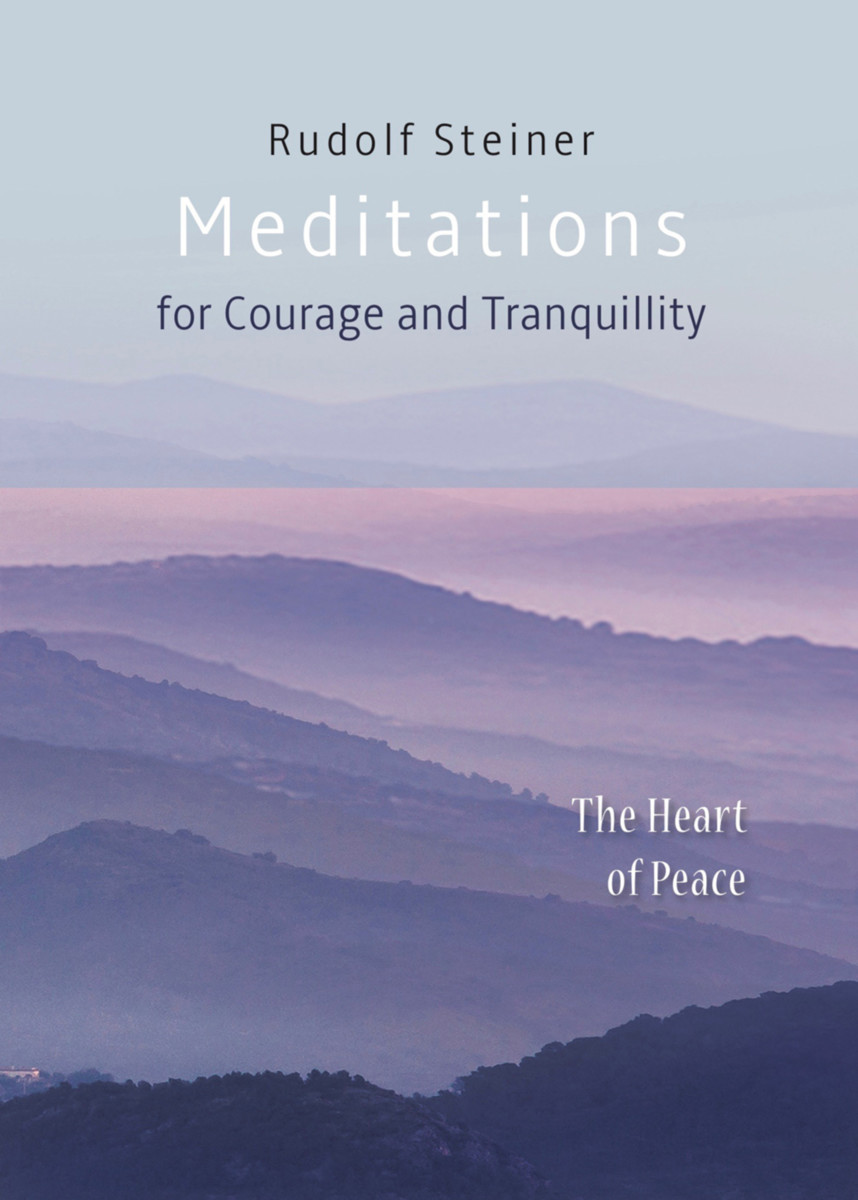- Publisher
Rudolf Steiner Press - Published
21st December 2018 - ISBN 9781855845534
- Pages 96 pp.
- Size 4.75" x 7.85"
The years flow past into the stream of time,
leaving us with memories;
and in remembering, the soul
weaves life together with life's meaning.
Live the meaning, trust existence;
and universal life will join
the core of your being with its own.
As a spiritual teacher, Rudolf Steiner wrote many inspired and beautifully crafted verses. Often they were given in relation to specific situations or in response to individual requests; sometimes they were offered simply to assist in the process of meditation. Regardless of their origins, they are uniformly powerful in their ability to connect the meditating individual with spiritual archetypes. Thus, the meditations provide valuable tools for developing experience and knowledge of subtle dimensions of reality.
Matthew Barton has translated and selected Steiner’s verses, sensitively arranging them by theme. In this collection—to promote courage and tranquility—Rudolf Steiner highlights the balancing, harmonizing forces of the heart, which are so much under attack in our cerebral culture.
The verses aim to strengthen the heart by warming and enlivening thinking, allowing for genuine peace of mind; by drawing feeling into the dark depths of our will, in order to help develop courage; by nurturing a real sense of peace within the heart; and by helping us to help others. Together they provide a powerful antidote to the stresses and strains of modern life.
Previously published in hardcover as The Heart of Peace (2002).
C O N T E N T S:
Introduction by Matthew Barton
1. Peace of Mind
2. The Heart of Peace
3. Strength of Heart
4. Strengthening Others
Notes
Index of First Lines
Rudolf Steiner
Rudolf Steiner (b. Rudolf Joseph Lorenz Steiner, 1861–1925) was born in the small village of Kraljevec, Austro-Hungarian Empire (now in Croatia), where he grew up. As a young man, he lived in Weimar and Berlin, where he became a well-published scientific, literary, and philosophical scholar, known especially for his work with Goethe’s scientific writings. Steiner termed his spiritual philosophy anthroposophy, meaning “wisdom of the human being.” As an exceptionally developed seer, he based his work on direct knowledge and perception of spiritual dimensions. He initiated a modern, universal “spiritual science” that is accessible to anyone willing to exercise clear and unbiased thinking. From his spiritual investigations, Steiner provided suggestions for the renewal of numerous activities, including education (general and for special needs), agriculture, medicine, economics, architecture, science, philosophy, Christianity, and the arts. There are currently thousands of schools, clinics, farms, and initiatives in other fields that involve practical work based on the principles Steiner developed. His many published works feature his research into the spiritual nature of human beings, the evolution of the world and humanity, and methods for personal development. He wrote some thirty books and delivered more than six thousand lectures throughout much of Europe. In 1924, Steiner founded the General Anthroposophical Society, which today has branches around the world.


